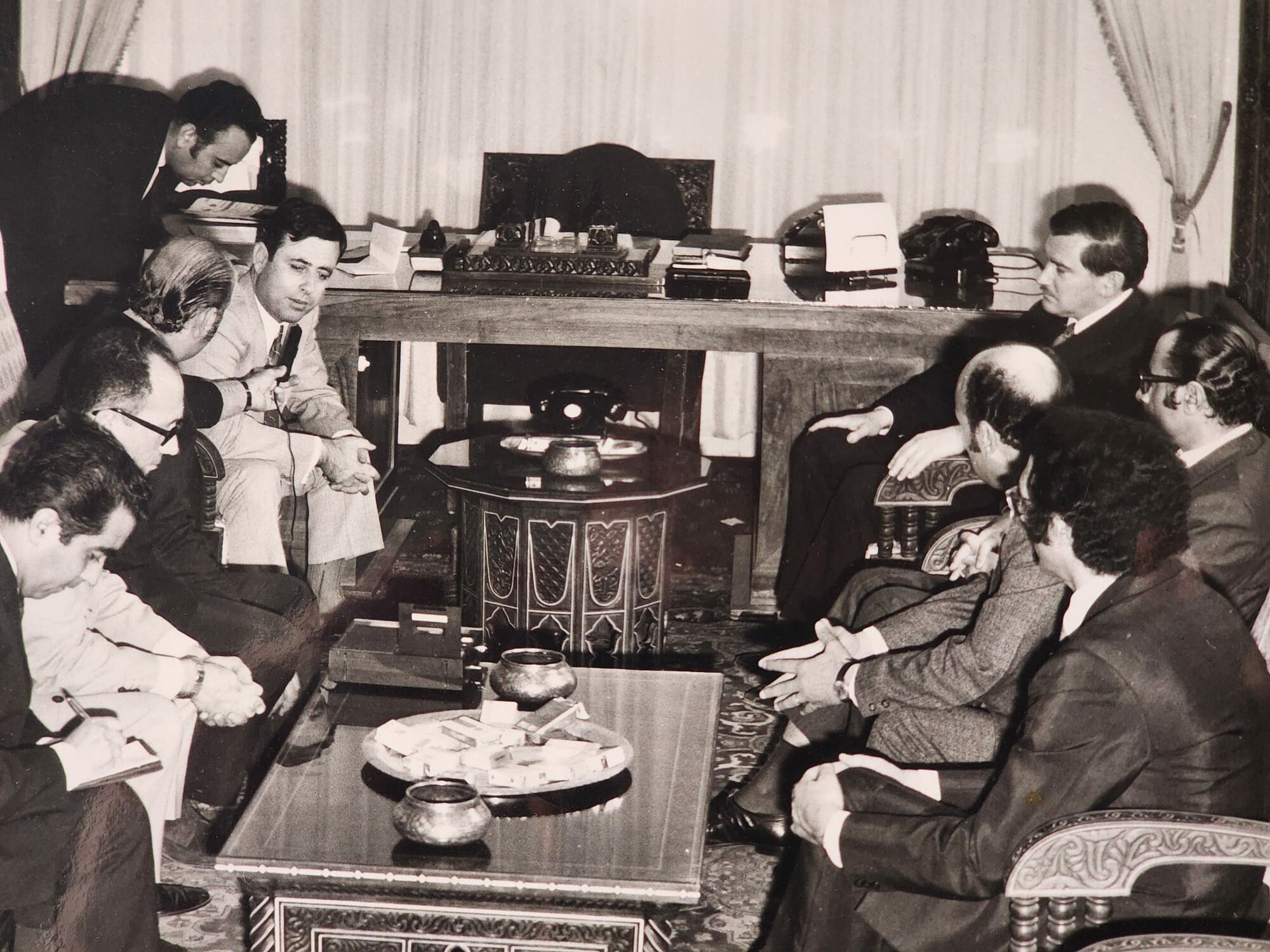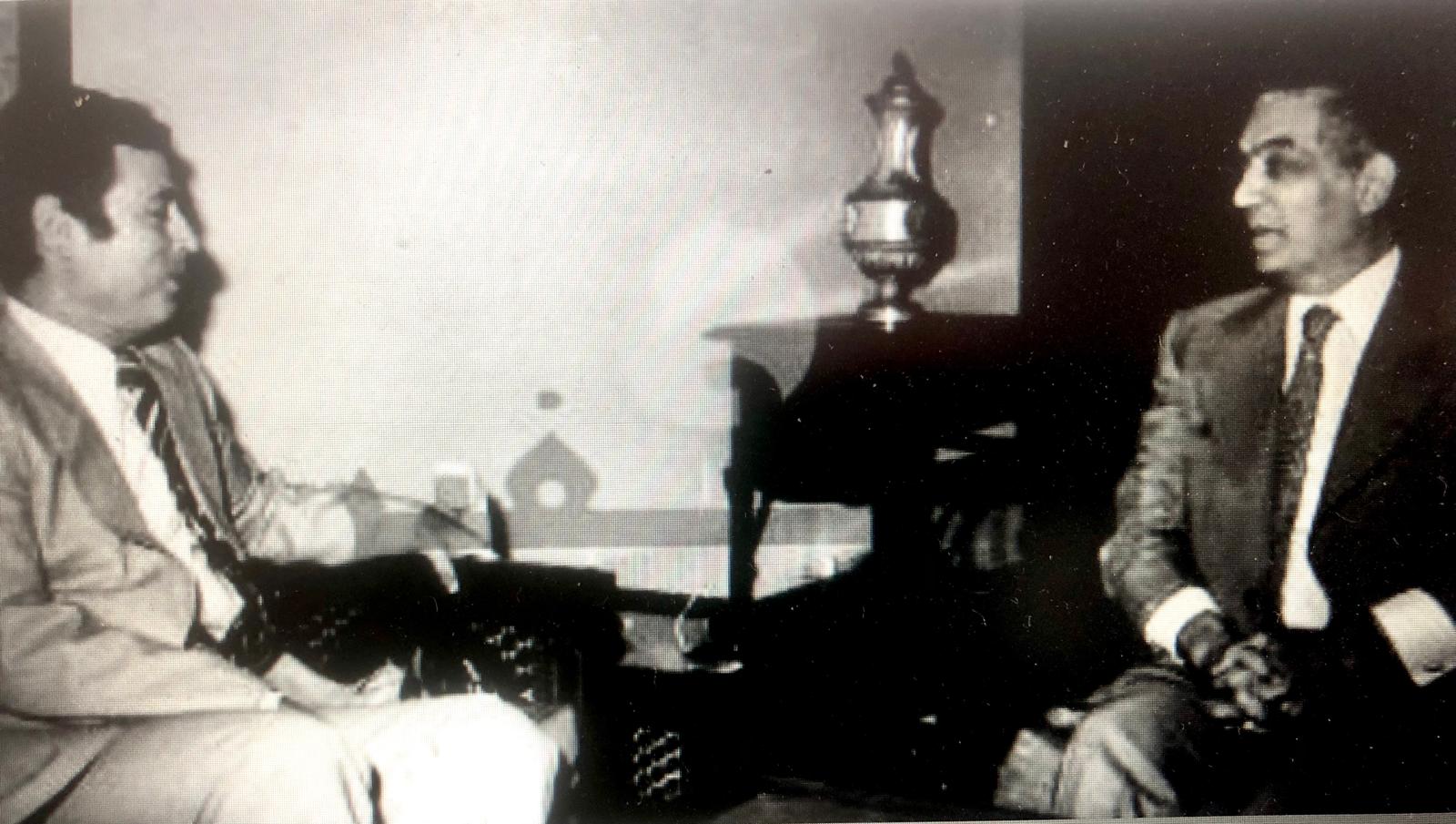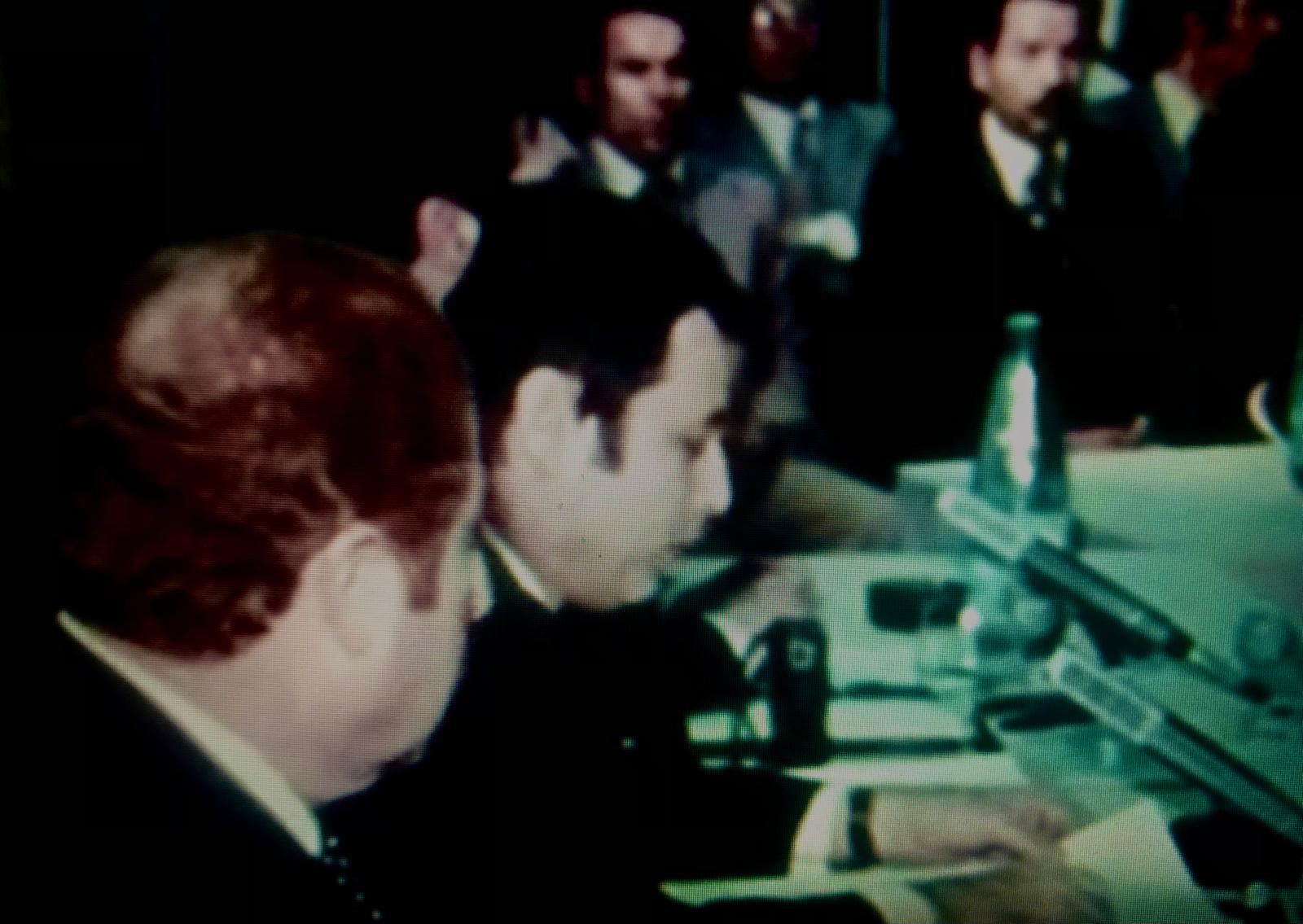Syria’s outspoken Foreign Minister, Abdel Halim Khaddam, voiced the Government’s anxiety over the possiblity of normalization of Egyptian‐Israeli relations and its impact on the rest of the Arab world in a major policy address last weekend to the Syrian Parliament.
The first main accomplishment of Mr. Sadat’s visit to Jerusalem, Mr. Khaddam said, was elimination of the state of belligerency and establishment of real reconciliation and normal relations between Israel and Egypt.
“The Israelis realize that only by establishing normal relations can they liquidate the Palestinian cause and achieve the Israeli concept of security,” the Syrian Foreign Minister declared.
‘Complete Control’ by Israel Feared
He warned that with normal relations, the Israelis would establish “complete control over the Arab homeland, economically, culturally and politically.”
Mr. Khaddam predicted that the Arabs would turn into a labor force for the Israeli economy, “as is the case presently on tile West Bank and the Gaza Strip.” The Arab citizen, whether worker, peasant, professional, businessman or scholar, would, under normal relations, be “a tool that serves the Israeli economy,” he said.
On the other hand, Mr. Khaddam said, the “Israeli concept of peace” would mean the opening of the region to millions of Jews in the world to immigrate and buy land in the Arab homeland “as was the case in Palestine.”
“Lands in Syria, Lebanon, Jordan and Egypt will be inabited by Jewish immigrants and become a base for a new Israeli expansion within the framework of establishing the Jewish state from the Nile to the Euphrates,” the Syrian Foreign Minister forecast.
Syrian ‘officials said that their principal aim now was to to demonstrate and to try to mobilize Arab opinion against it.
President Hafez al‐Assad, it was said, would attend an Arab “hard‐line” gathering in Tripoli, Libya, tomorrow to alert the Arab world to what Syria sees as “the dangers” of Mr. Sadat’s policies.
Syrians See ‘Aggressive Threat’
In private conversations, Syrian officials express strong apprehension of what has come to be known as “the nature of peace.” While stressing pride in their ancient civilization, they tend to look warily at Egypt’s openings to what they see as an increasingly aggressive threat cf international Zionism.
“Israel needs Arab markets and manpower and wants to turn the Arab society into a consumer market for Israeli goods produced by Arab workers,” a Syrian said. He predicted that if the Egyptians went through with the plan for economic cooperation, their economy would be tied to Zionism and they would lose their independence.
Mr. Sadat thinks that cooperation with Israel will solve Egypt’s economic difficulties, according to Syrian Government sources. He is said to have told Syrian leaders that he wanted Israeli technology and to have assured them that he could keep the Israelis “under control.” He said that if he was able in 1972 to get rid cf the Soviet military technicians in Egypt, why should he not be able to get rid cf Israeli technicians if necessary.’
Syrians disagree ana in private frequently liken Mr. Sadat to Marshal Petain, the French leader who collaborated with Nazi Germany after the 1940 defeat, preferring to bring “humiliation” to his country rather than suffer more loss of life and destruction..




